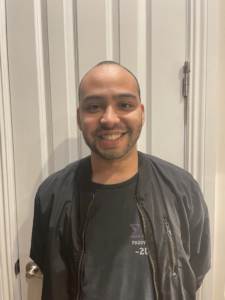Family, Trauma, and Life as Writers: An Interview with Kate Maruyama and Andromeda Romano-Lax
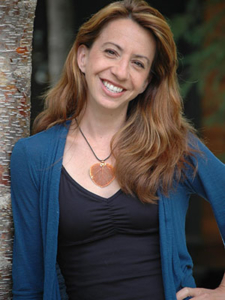 Andromeda Romano-Lax began her career as a freelance journalist and travel writer before turning to fiction. Her first novel, The Spanish Bow, has been translated into eleven languages. Her interest in the arts, history, science, and technology is reflected in her novels The Detour, Behave, Plum Rains, and her latest work, Annie and the Wolves. Romano-Lax co-founded and blogs for 49 Writers, a nonprofit organization.
Andromeda Romano-Lax began her career as a freelance journalist and travel writer before turning to fiction. Her first novel, The Spanish Bow, has been translated into eleven languages. Her interest in the arts, history, science, and technology is reflected in her novels The Detour, Behave, Plum Rains, and her latest work, Annie and the Wolves. Romano-Lax co-founded and blogs for 49 Writers, a nonprofit organization.
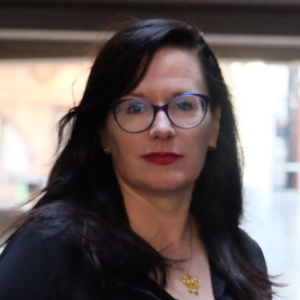 Kate Maruyama first began writing screenplays before moving to novels and short stories. Her novel Harrowgate was published in 2013 by 47North and her most recent project, the novella Family Solstice, is published by Omnium Gatherum. Her short stories can be found in Asimov’s Science Fiction magazine, Phantasma: Stories, and many others. Both Kate and Andromeda earned MFAs in creative writing from Antioch.
Kate Maruyama first began writing screenplays before moving to novels and short stories. Her novel Harrowgate was published in 2013 by 47North and her most recent project, the novella Family Solstice, is published by Omnium Gatherum. Her short stories can be found in Asimov’s Science Fiction magazine, Phantasma: Stories, and many others. Both Kate and Andromeda earned MFAs in creative writing from Antioch.
I had the pleasure of conducting this interview with Andromeda and Kate on February 2nd, 2021, over Zoom.
Nicholas Galvez: Congratulations, Andromeda, Annie and the Wolves was released today!
Andromeda Romano-Lax: It’s my fifth novel but I think it’s actually the most exciting book release I’ve ever had. In the past I was one of those writers who thought I was supposed to stay invisible and quiet, and not react to reviewers and readers, but now I do that more and I’m really enjoying it. It’s made this book release feel more real and satisfying to me.
NG: Long gone are the days where you could pull a Salinger and just seclude yourself while you write.
ARL: There still are a couple of writers who do that. It’s just that for me personally, as a writer, writing can actually be very isolating, so I’m enjoying being more connected.
Kate Maruyama: Publicity is expected now, no way around it. Social media is hard. They say that writers should be doing what’s in their comfort zone. I’ve been on social media for a bit so I’m comfortable on Facebook and I’m relatively comfortable on Twitter and just sharing things about writing and stuff, but I think it’s up to the writer what platform they want to use.
NG: How has the pandemic affected your writing processes? Things have been so chaotic.
KM: It’s been challenging for me. I definitely shut down for those first three months of quarantine, sort of absorbing information. There’s a human theory that when things go chaotic, your brain gets a little bit more surface so it can deal with all the information coming at it at once and I definitely felt that. My students have felt it too and our workshops have changed to a more accepting place where people bring what they can get done that week. The fact that they’re writing at all is fabulous.
ARL: For me I think the quarantine itself was not problematic; in some ways it was helpful to have fewer distractions. The political chaos is what interrupted my process the most. I couldn’t stop checking the news hourly, so there was no way I could write a novel in that sort of headspace. I still think it is possible to get things done. Even if you only write a few hundred words a day it still adds up, and what I’ve seen among my students is half of them are producing less and half of them are actually producing more.
KM: Especially from a variety of writers, I know some people who’ve just been writing like crazy because that is how they’re navigating this space and getting through. I admire that.
ARL: I hope that other writers are not blaming themselves if they’re not feeling as productive. Part of the writing process is experiencing the world, so there could be things coming at us and things we’re learning and doing right now that are going to go into our fiction or memoir five years from now and that’s great, too. We’re not always just writing at the desk, we’re actually living and that’s probably the most important thing.
KM: I’m always telling my students, you’re in a pandemic. If you produce anything you’re doing great.
I had a short story that I had stopped on and realized that if I contemporized it into the quarantine, all of its problems were solved. There’s a big question about what to write, because now anything before last March is historical fiction. The question now for people is how to move into writing the present, or writing the slight future accurately and do we have a duty to this?
NG: Since we live in such a reactionary time, writers need to be able to at least confront those questions just because things are so chaotic, so life needs to be represented that way. Both of your works have a lot to do with family, so I was wondering if you two could give insight to how your families factor into the writing process?
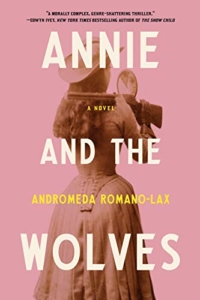 ARL: Annie and the Wolves is actually the most autobiographical novel I’ve ever written. In the past I’ve distanced myself from discussing family and with this book I’m being much more open about it. The origin story for this book came from two things happening at the same time: one was that I stumbled across a footnote that explained that Annie Oakley was abused as a child by a couple called “The Wolves” that she was forced to live with for two years, but then the other originating inspiration was that my father was on his deathbed and I had been out of contact with him since the age of fourteen, because I found out that he had sexually abused my two sisters. We got a notification that he was dying and at that time, my sister told me over the phone that she was considering paying him a visit, possibly even with a gun. The question of a family member taking revenge on another family member combined with what I was researching about Annie Oakley created this story.
ARL: Annie and the Wolves is actually the most autobiographical novel I’ve ever written. In the past I’ve distanced myself from discussing family and with this book I’m being much more open about it. The origin story for this book came from two things happening at the same time: one was that I stumbled across a footnote that explained that Annie Oakley was abused as a child by a couple called “The Wolves” that she was forced to live with for two years, but then the other originating inspiration was that my father was on his deathbed and I had been out of contact with him since the age of fourteen, because I found out that he had sexually abused my two sisters. We got a notification that he was dying and at that time, my sister told me over the phone that she was considering paying him a visit, possibly even with a gun. The question of a family member taking revenge on another family member combined with what I was researching about Annie Oakley created this story.
KM: My book Family Solstice is centered on family, but it’s me questioning my roots. My ancestors came here three hundred years ago and have taken advantage of this country pretty much ever since. My question was more the culpability of being white in America and inheritance. The name Massey is actually the first name I could trace back to the family that came here in 1706. The book is a reflection on damage that the family has wrought over generations.
NG: I don’t want to spoil it, but the ending of Family Solstice kind of has a bittersweet futility in which doing the right thing causes way more problems. Culpability is one of the main factors of the story, which I found compelling, especially during COVID where everybody is looking out for their best interests rather than the interests of the collective.
ARL: What I loved about Family Solstice was that by the end I was asking a lot of questions and I could perceive a message in that. Kate, did you start off with a message or question, or did you start off with an inspiration that led you to these issues and cultural questions?
KM: This book came from the fact that my family home was about to be sold after my mother had passed but was utterly destroyed by burst pipes. This book was sort of my way of dealing with that. I just went for what is a family’s weird tradition on solstice and how can I incorporate this house that I grew up in into the story? Whether people set out to write stories with messages or whether they just sort of emerge when you’re writing … how is that for you? That’s kind of a big question.
ARL: For me I hope that I never have a message, but I hope that I do have a question.
KM: I think that’s a really good way of putting it too, that it’s questions and not messages. My questions were what is this family’s culpability and what they have been carrying on? How can we make things better if we can’t kill the beast that created it all?
NG: How long have you two been writing?
ARL: Forever, can’t you tell? Look at us.
KM: I’ve only been writing fiction technically for twenty-four years. I think it was in my thirties when there was something that would not work in a screenplay that I wrote as a novel, but yeah, a long time.
NG: Since you both have completed projects I wanted to ask, what’s next for you two? Where do you go from here?
ARL: I always have multiple books or projects that I’m working on and my next book is a thriller set in Guatemala. It’s a mother-daughter story. I am starting work on two other projects, so that’s something I’m always doing, I’m always toggling between projects and then sometimes setting them aside for a while, because I focus more on coaching or I’m focusing more on revision or some other collaborative project.
KM: For me, the last book I wrote took it out of me because it was very close to home. My mom had died of brain cancer and my dad had passed from Alzheimer’s and I wrote this novel that encompassed that. It took a lot, so I’m focusing on short stories right now.
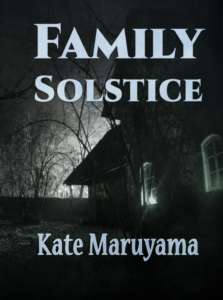 I mean, this novella started as a short story and sort of grew into what it is. I’m definitely comfortable in and love the novel form, but I need something to be speaking to me very loudly to go back into it. I’m enjoying short stories. What’s nice about them is that they get published a great deal more quickly and they go out there. And I had a short story in Asimov’s Science Fiction, which was a lifelong dream. It’s just been a comfortable space for me as we process and move into different times. It’s a doable thing. It’s an accomplishable thing. So until I have a novel that screams its way into my head, I’ll be doing short stories for a while.
I mean, this novella started as a short story and sort of grew into what it is. I’m definitely comfortable in and love the novel form, but I need something to be speaking to me very loudly to go back into it. I’m enjoying short stories. What’s nice about them is that they get published a great deal more quickly and they go out there. And I had a short story in Asimov’s Science Fiction, which was a lifelong dream. It’s just been a comfortable space for me as we process and move into different times. It’s a doable thing. It’s an accomplishable thing. So until I have a novel that screams its way into my head, I’ll be doing short stories for a while.
ARL: So, long before I knew Kate we were subscribers to Asimov’s for decades, we were collecting them in boxes, and we had issues that had, on the cover, stories by her mother, Kit Reed. I couldn’t believe it when I got to know Kate that here was the daughter of a writer I was familiar with. Kate, at least one of your children writes seriously, right? And I have a daughter who actually has a novel going out on submission very soon; she’s twenty-two-years old and she has a novel going out. I’ve always wanted to hear Kate talk about the multigenerational aspect of being the daughter of a writer and the mother of a writer. What have you learned from that? What advice you would give or not give to your own daughter?
KM: It’s funny, my mom was a really prolific writer, she published upwards of thirty books but she was very much Mom. Her writing life didn’t bleed into ours except for we could not bother her before noon. I definitely did not think about writing fiction because it seemed like someone in the house was already doing it and was good at it. I didn’t think about writing fiction until I was about thirty. I was writing screenplays because that would be my thing. I have no idea why I thought people all had to have separate things.
But I don’t know about advice. I think the kids will do what the kids will do. I did not expect my daughter to start a novel, but she had a friend who was deported her junior year and she was incredibly riled up, as we all were, by ICE and everything going on there, so she started just diving into a story. It’s a story set in high school, it’s very Los Angeles and there are lots of different characters from different backgrounds, and I have a feeling it’ll be amazing. She’s at college full time now, so the writing will likely come in the summer. I told my mom she’s writing a novel and my mom said, “Of course she is.” It’s been an experience. I think encouraging the kid to develop what art makes them happy is just general good parenting advice. I told both my kids they need art for sustenance, regardless of what they do for a profession. My daughter is definitely not thinking about being a writer as a profession, she wants to be a psychologist, so I don’t necessarily have good advice except if they write, supply the paper, if they paint, buy them paints.
NG: What advice would you give to younger writers, Andromeda?
ARL: That each book will be your best teacher. That’s really important to get going and to take yourself seriously. I am an advocate of writing what you most love to read, and so the one thing I feel very strongly about is, if you really love novels and you’re surrounded by novels, don’t think you should only write short stories because they’re easier, when they’re not easier at all. So I think you should jump immediately into whatever form or genre excites you and understand that you’re going to have to write a lot of pages to learn the tools and so you should get started and that’s it.
NG: So would you say that failure is a great teacher?
KM: Oh yeah.
ARL: Yeah, there’s the old phrase “fail and then fail better.” I think for all of us, here’s something I didn’t know as a young writer myself that I hear my own daughter saying, that when we’re writing these books we have imposter syndrome. And I joke that our characters have little popsicle sticks and we’re moving them around like little puppets and they don’t seem real, especially at the beginning when you’re first starting a novel. And so, to not misunderstand that, to realize that even after you have many published books, the beginning of the manuscript is always going to feel that way, or at least it does to me.
KM: I had a period where I wasn’t writing new stuff, I was revising a book that was getting published and revising one that was going to market for a year and a half and I sat down to write a new book and I was like, my characters are horrible and cardboard. And I had to remind myself that all of them started out that way because I hadn’t gotten to know them yet. But now that we’re here I was wondering if we could talk about being beta readers for each other? It’s amazing what we’ve found together in exchanging work and notes.
ARL: Just in the last couple years I read about Philip Roth, this was right before he was retiring or around the time he was retiring, and he was still using beta readers. I think he had, they were not necessarily novelists, they were just good readers. That reminded me that it’s not something you outgrow, the need for feedback, the need for encouragement, and Kate’s done that for me and I’ve done that for her. And I would say, for me, it can be especially important when I’m in the beginning of a project, maybe sometimes needing to try out those first fifty to one-hundred pages when the world doesn’t seem real to me, when I’m not sure it’s working, you could make the argument for not getting feedback too early. But for me, I often need to feel that sense of community out there and to know other people are there for me.
KM: And questions. I don’t get beta readers on my novels until I’ve done a draft and then I’ve gone through it again because I want that sort of full read. I have a couple of friends I will give stuff that may not be as finished as I would like because I trust them with it and Andromeda is one of those people. She’ll ask all the right questions and what’s really valuable is she’ll see what I can’t see yet. Like you’ll see themes and patterns and things emerging and when you’re the creator of those it’s hard to see. If you get an outside reader they can say, oh I see this is all about, you got this theme of complicity here, and then when you go back through to shape it up to maybe send to an agent or any gatekeepers, you can emphasize that theme and make sure the throughlines are working for that.
ARL: I also agree that this is why sometimes you need a number of different beta readers, because I do like to have a person who has not read any of it, for whom it’s a fresh read when they get the full thing and then other people for the beginning. So I often will save my husband, who’s a very good reader, but I often won’t show him stuff until it’s completely done because I’m afraid he’s going to become too draft blind and then he won’t be able to do that for me.
KM: I have people who are better with polished stuff for that second draft. It’s comforting knowing that when you have a beta reader and you’re exchanging work with people, you can see the process and see how they’re writing at something, but it’s not necessarily evident on the page. I only saw the early beginnings of Annie and the Wolves, but to see the final crafted, beautiful manuscript is just a really exciting part of the process.
NG: Writing is always depicted as an isolated thing, which it is in the process, but when you’re actually done writing it’s good to have people to actually talk to about that. Whenever I have a manuscript or a story I want to send, I always like to imagine it like it’s a sick patient, so I get one opinion and then I get a second opinion and then a third and so on.
ARL: I’m cynical about doctors, so I agree, I need a lot of different opinions and it’s true with beta readers as well.
NG: Might as well get the most out of your work when you can, you know?
KM: I always, with my genre stuff, ask someone who genre is not their expertise at all and it’s the best, because they will ask super plain questions that folks who read genre all the time infer because they’ve seen tropes before. And she’ll be like, I don’t understand, is this wolf a wolf or is it a manifestation, what’s going on? And those questions are super useful to me as a writer.
NG: Do you two have any closing remarks?
KM: I think the last thing I’ll say is buy Andromeda’s book, it’s amazing and it’s getting a lot of advance notice and it talks about so many different things and reveals itself in layers, that it’s an absolute joy to read.
ARL: And I’ll say buy Kate’s book. I read it before it was published, and I absolutely loved it and it makes me even more interested in horror as a genre.
Nicholas Galvez is an MFA Student at Antioch University. He received his B.A. from Florida Southern College in Lakeland, Florida. When not reading or writing, he likes to sing, sleep, and water plants.

